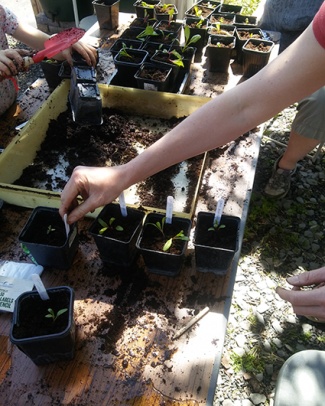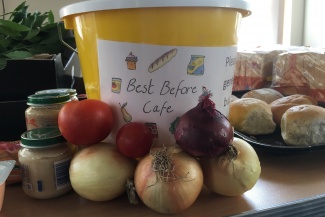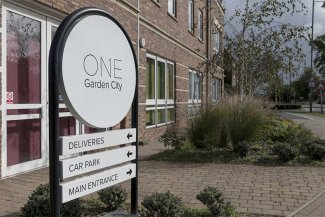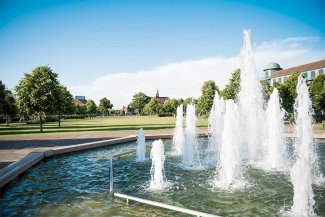What have you been up to since we last spoke?
I’ve been busy creating a set of maps of the food-related locations in Letchworth Garden City, these are now available for the Heritage Foundation to make use of. Generating these maps involved plotting the locations of allotments, common gardens, markets, supermarkets, small shops, restaurants, pubs, processors, wholesalers, associations and institutions, waste disposals, open green space, wooden land, productive land. As part of this process I’ve also had the chance to meet local people who are a part of the food economy network in Letchworth Garden City, talking to them has been really valuable and helped complete the maps.
What have you discovered about the Garden City’s legacy when it comes to food?
What struck straight away on this project is how Letchworth Garden City’s historical attitude in relation to food is even more relevant today than it appears, and how our modern-day concerns about food are to some extent similar to those during Howard’s time. His ideas around vegetarianism, urban agriculture, common canteens, community solidarity, and the local food supply chain are movements that are even today considered as emerging. While the historical contexts are different, the solutions or propositions are inspired from the past and Letchworth Garden City embodies a certain genesis of these engagements, based on community strengths and independency of the local government.
Are the Garden City ideals still represented in the food economy today?
Definitely. Letchworth Garden City is an attractive location for alternative shops that carry ethics relevant to the sustainability of food economy and some of them have mentioned the history and identity of the town as a reason as to why they settled in Letchworth. Letchworth has an array of local shops offering unusual goods or service that all help develop a sustainable food economy: plastic-free shop, vegan bistro, local brewery and cider processor to name a few. Because of the uniqueness of these services a number of customers are eager to make the journey to Letchworth!
It seems that the community is a huge part of the food economy in a Garden City
Ultimately, food economy networks are made and driven by the community. A brilliant illustration exists in Letchworth. Tired of witnessing the shortcoming of food policy at a national level regarding food wastage, volunteer residents in Letchworth decided to collect donations of near-to-be expired food that supermarkets would otherwise have disposed of in landfill and make it available for the public to use on a pay as you feel basis. This initiative is one that appears to be sustainable, providing the community continue to support it.
What have you noticed about Letchworth during your travels?
What’s immediately apparent about a garden city is the diversity of urban layout and how places to grow food are scattered around the town, it’s quite remarkable! Letchworth is a green town because it was designed that way for its residents’ wellbeing and also for food to be grown. As a result, if an area is isolated from accessible food supply if one doesn’t own a car, somehow, potential communal food growing places are nearby, even if not used as an allotment.
What are the next steps of your study?
On an academic side, the project has been accepted to be continued and consists now in a three-year PhD project. I’m pleased to say that I’ll continue to be working with the Heritage Foundation and will report my findings back. These are taking different forms: talks and presentations of the research’s conclusions as well as academic piece of work for the International Garden City Institute (IGCI).
Well, we wish you all the best!
Thank you! I would like to express my gratitude to everyone I have met on site for sharing knowledge and time with me. If you are interested in the research or in the topic, it would be a pleasure to hear from you. Please contact me: a.andre@herts.ac.uk




